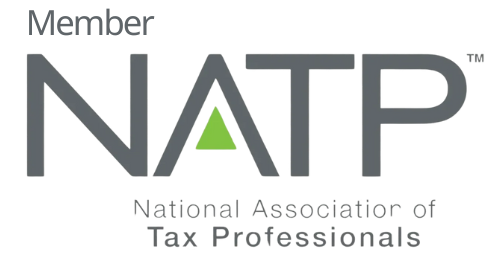About me
I graduated from Georgia College and State University in 2018 with a BBA in Accounting and began my accounting career as an intern at a local CPA firm beginning in 2016. Since then, I have held the roles of staff accountant, senior tax advisor, and tax manager. In 2021, I became an Enrolled Agent with the IRS. My passion is helping others navigate the complexities of the tax and accounting world. My desire is to provide financial peace of mind and to develop life-long relationships.

What is an Enrolled Agent?
Enrolled agents (EAs) are federally-authorized tax practitioners who have demonstrated technical competence in tax law and are the only taxpayer representatives licensed to practice by the United States government. Only EAs, attorneys and CPAs may represent taxpayers without limitation before the IRS. EAs advise and represent taxpayers who are being examined by the IRS, taxpayers who
are unable to pay, and taxpayers who wish to avoid or recover penalties. EAs prepare tax returns for individuals, partnerships, corporations, estates, trusts and any other entities with tax-reporting requirements. Unlike attorneys and CPAs, who may or may not choose to specialize in taxes, all EAs specialize in taxation and are required by
the federal government to maintain their professional skills with continuing professional education.


After the Civil War, many citizens had problems settling claims with the government for horses and other property confiscated for use in the war effort. After many petitions and much pleading, Congress, in 1884, endowed enrolled agents with the power of advocacy to prepare claims against the government and to seek equitable justice for the citizenry. For many years, the purpose of the enrolled agent was to act in this capacity. In 1913, when the income tax was passed, the job of the enrolled agent was expanded to include claims for monetary relief for citizens whose taxes had become inequitable. As the income tax, estate, gift and other sources of tax collections became more complex, the role of the enrolled agent increased to include the preparation of the many tax forms that were required. Additionally, as audits became more prevalent, their role evolved into taxpayer advocacy and negotiating with the Internal Revenue Service on behalf of their clients. In 1972, EAs united to form a national association to represent the needs and interests of EAs and the rights of taxpayers. That association is today called the National Association of Enrolled Agents (NAEA). Through their national association and state affiliates, enrolled agents have successfully defended their rights to practice and furthered the passage of legislation and administrative rules that benefit both tax practitioners and ordinary citizens.
“When I started working part time as a contract worker, in addition to my full-time job with tax benefits, Katie helped me plan accordingly so I came out ahead in my retirement and tax plans.”
-Melissa Smith


